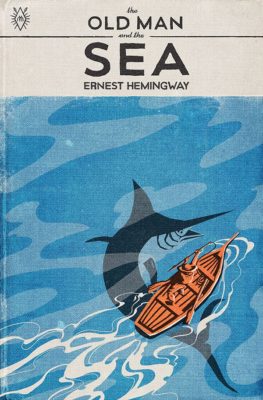Review: The Old Man and The Sea by Ernest Hemingway

Masculinity and maintaining face
This was published in 1952. It won the Pulitzer Prize, and was the last major work by Hemingway. You can read it in about two hours.
It’s the story of an old man who is very poor and hungry. For months he has not caught a fish large enough to sell. He goes to fish out in deeper waters, and an enormous marlin bites his line. They begin a battle of wills.
At first I was wondering where could this story possibly go? It’s just a man and a fish. But I realised there were a lot of directions it could take.
Will the fish escape because of its own strength, or because the man’s strength fails?
Will the man release the fish out of respect, despite his need for money?
The ending did surprise me, and of course it was loaded with allegorical meaning. I was impressed by the clean simplicity of the style and structure. The beauty of this story lies in its minimalism.
There was one aspect of the book which really concerned me, however. It was the taboo of men asking for help.
The old man is starving, but maintains a facade of being ok. A young boy brings food for him and gives it in an indirect way, to avoid acknowledging the struggles the old man is having. The entire book then follows the story of the old man overcoming a struggle on his own.
The behaviour of not seeking help is framed as noble and resilient. To admit that you are facing personal struggles would be seen as a failure and a loss of manhood.
Much of Ernest Hemingway’s writing focused on very traditional ideas of masculinity along the lines of ‘men don’t cry’.
This emotional shaming feeds in to numerous social issues.
There are many everyday scenarios where men can feel pressure to maintain a facade of masculinity. They may prefer to make an awkward joke than to be seen shedding a tear, or they may order a beer instead of choosing not to drink. What impact does this pressure have on a person’s wellbeing, as well as the way they treat others?
Many readers still enjoy ‘The Old Man and the Sea’ as an invigorating story about being a man and overcoming adversity. To me, it just seemed sad.
It’s important that we reframe this story with appropriate social context and leave the traditional gender roles back in the 50s.
3 out of 5 fish hooks.